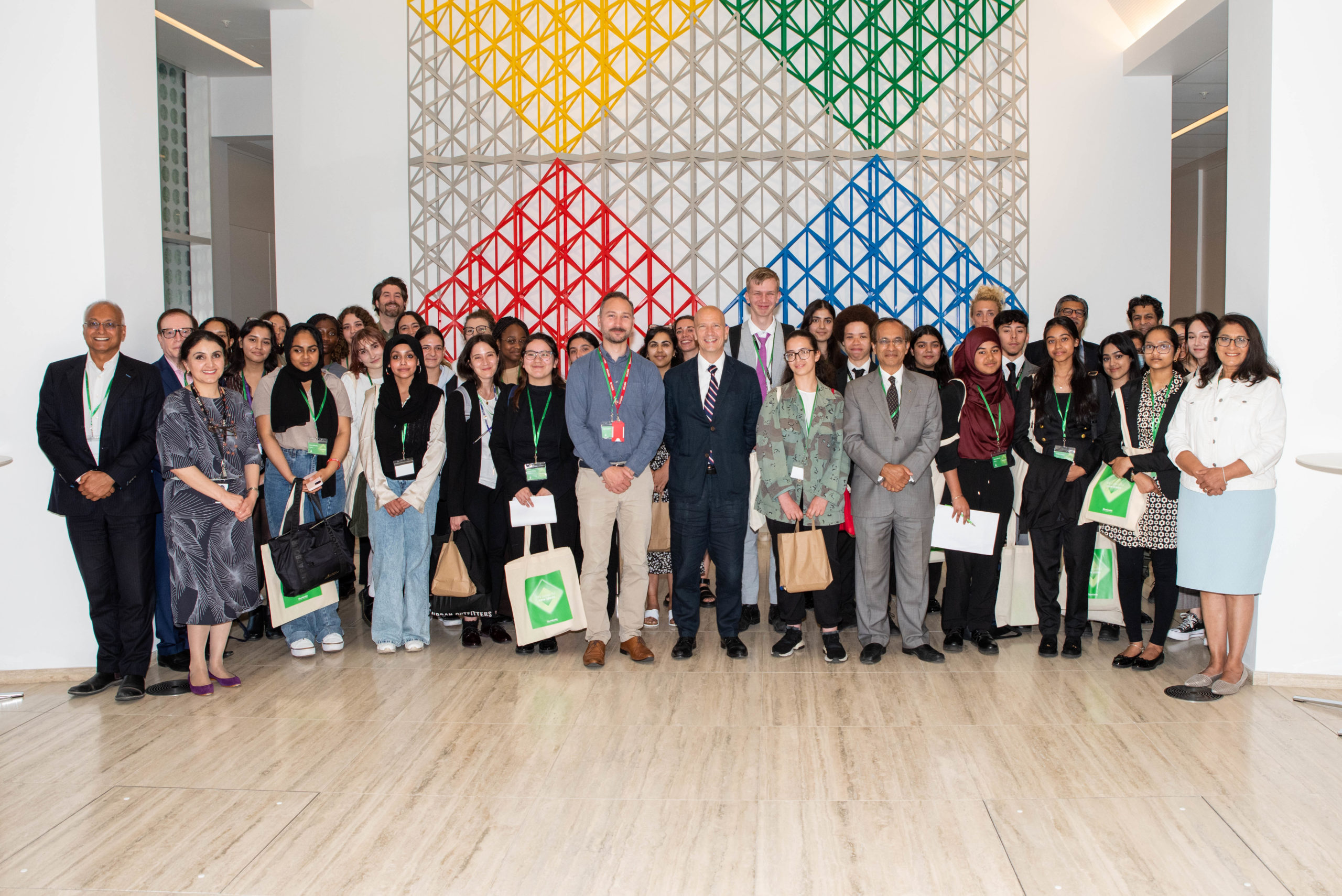From 11 to 13 November the 2ndannual Paris Peace Forum was held, bringing together politicians, activists, journalists and experts from around the world to share knowledge and discuss concrete solutions to the major issues of our time. The Aga Khan Development Network (AKDN) was privileged to have been a partner, sponsoring the event and taking part in several panel discussions. The forum’s themes covered the environment, peace and security, inclusive economy, new technologies, development, and culture and education.
Heads of State from over 30 countries gathered for the opening plenary on 12 November. His Highness the Aga Khan was in attendance, along with many other notable dignitaries, including French President, Emmanuel Macron, UN Secretary General, Antonio Guterres, and President of the European Commission, Ursula Von der Leyen. The tone was set by noting the anniversary of the Armistice day and the failure of the world to have acted on its promise of “Never Again”, but with each speaker commenting on the positivity of such a unifying event and highlighting the need for concrete solutions to be proposed during each session.
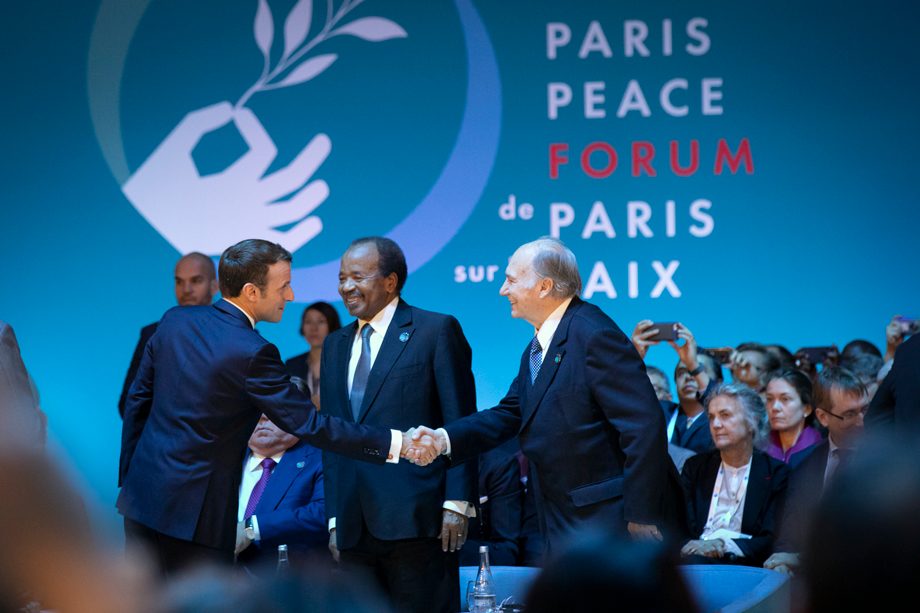
“If climate change is the existential crisis of our day, pluralism is the existential question facing our societies, asking how will we live together in difference?”
Meredith Preston McGhie
AKDN’s first panel discussion was a joint event with partners from the Global Centre for Pluralism (GCP) presenting their winners of the 2019 Global Pluralism Award. The panellists demonstrated how their work engaged people from a variety of backgrounds, ethnicities and ages to impart cultural understanding between different groups in search of commonalities and to work towards a peaceful, inclusive future. Secretary General of the GCP, Meredith Preston McGhie, closed the session with the powerful statement: “Inclusion is a choice. Pluralism is a choice. There are concrete actions that can be taken every day to further these causes.”
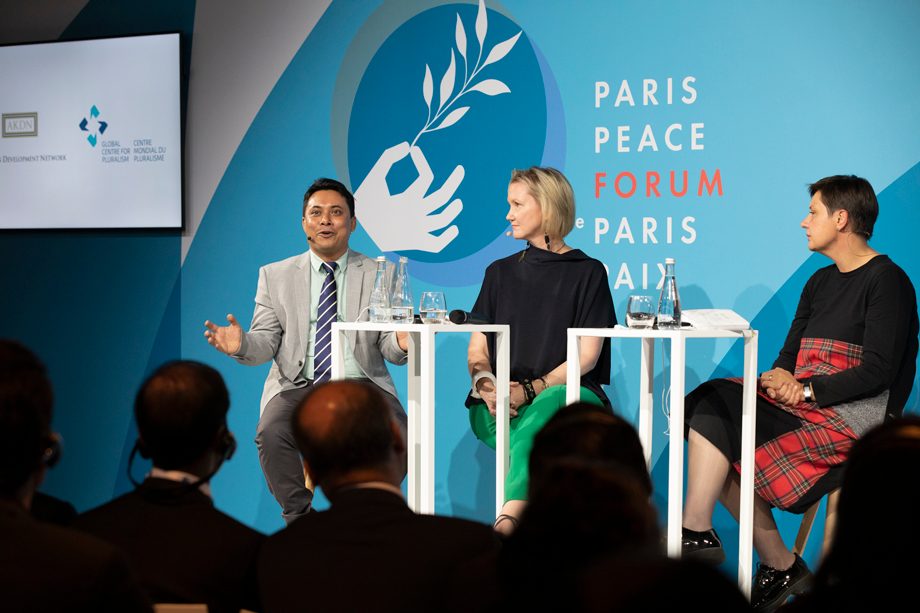
Onno Rühl, General Manager of the Aga Khan Agency for Habitat (AKAH) later moderated a lively panel discussion on climate-resilient infrastructure that brought together a variety of experts in the field.
There was a conclusive agreement amongst all the panellists that it is not enough simply to save lives from climate disasters, but that livelihoods carry equal importance – the knock-on effects of damaged infrastructure through natural disasters can be prolonged and devastating. Mr Rühl touched on the problem with existing infrastructure, stating, “we have a huge stock of infrastructure that was built with a different risk-profile in mind.” His comment indicated the depth of the problem – not only is there a need to build new resilient infrastructure, but existing infrastructure must be strengthened to give vulnerable communities the best chance of mitigating the worst effects.
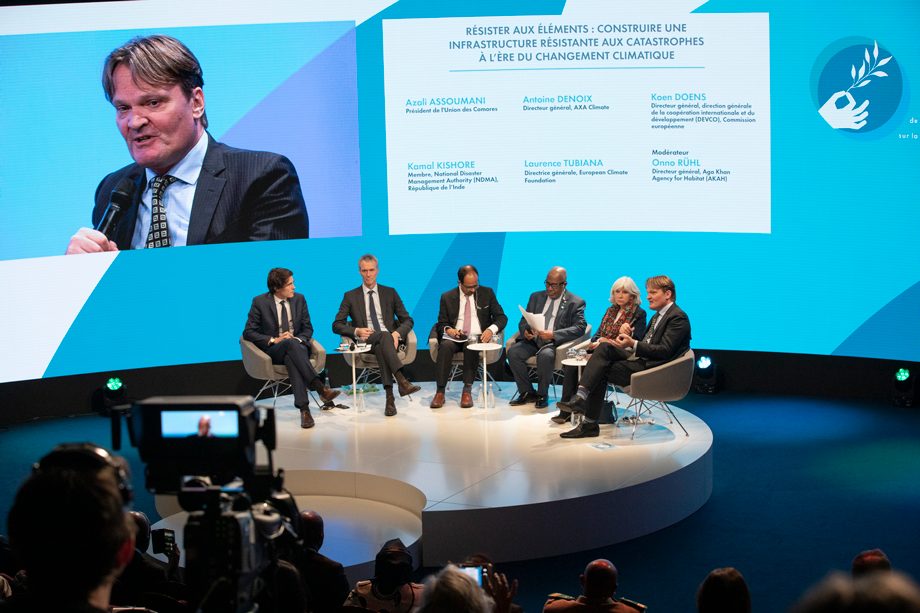
“We have to emphasise the positive aspects of those countries that can be the enabler for change.”
Dr Najmuddin Najm
On the second day, Dr Najmuddin Najm, CEO of AKF Afghanistan, took part in a panel discussion about conflict prevention and stabilisation of fragile states, alongside Christian Kramer, Director for Afghanistan, Pakistan and Iraq at KFW Development Bank, amongst others. The conversation was hopeful and productive, especially given the complexity of the issues, with Dr Najm concluding that alongside a variety of concrete actions that can be taken (and the very great need for these to be community-led at every point), a change in narrative was needed – that a more concerted focus on the positive aspects of these nations would be the enabler of change:
“Let’s look at the potentials, the capacities that are there, the opportunities that exist in those countries. I think the time has come that we have to emphasise the positive aspects of those countries that can be the enabler for change, the enabler for harmony, and the enabler of overall development in the country.”
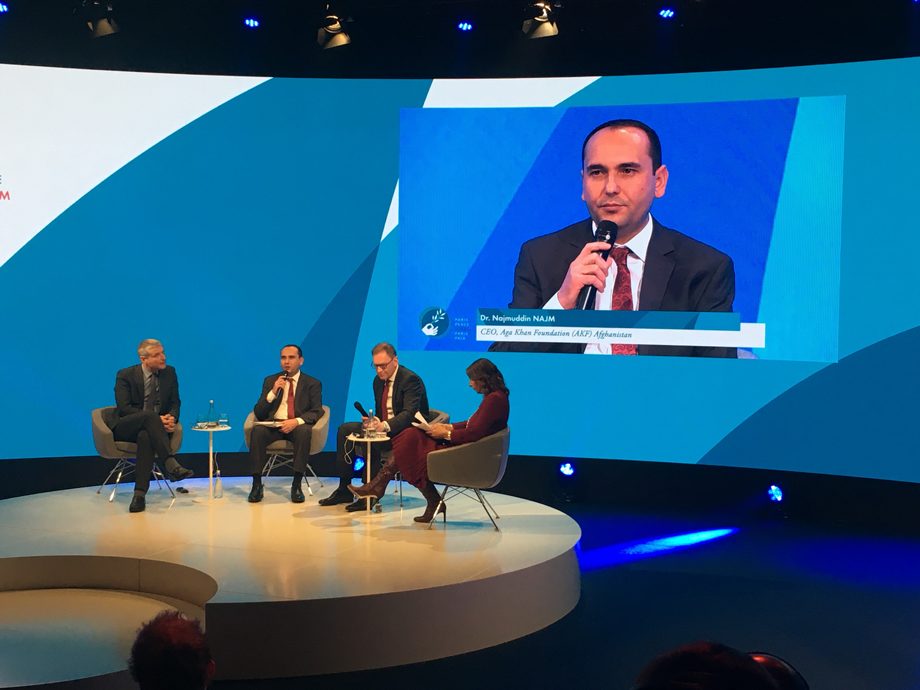
AKDN’s final session brought Meredith Preston McGhie back to the table to discuss how best to work towards the inclusivity of minority groups. Meredith spoke powerfully on this important issue, stating: “If climate change is the existential crisis of our day, pluralism is the existential question facing our societies, asking how will we live together in difference?” The response to this important topic was overwhelmingly positive and highlighted the capacity of the forum itself to bring together diverse cultures and groups with a shared goal of working towards a fairer and more inclusive world.
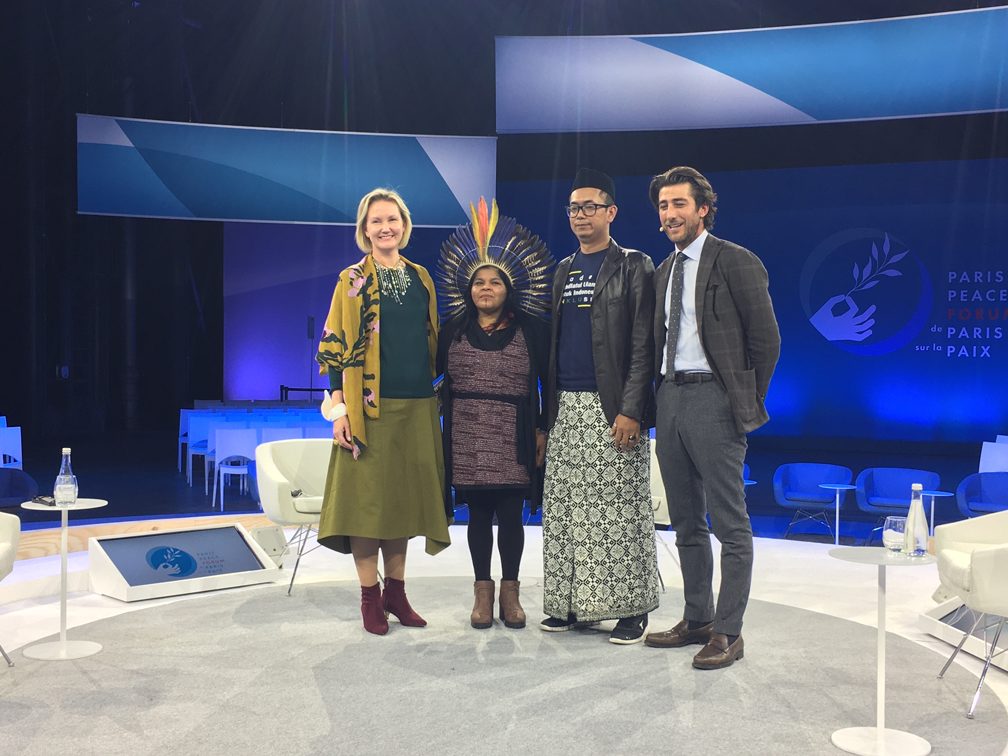
AKDN’s involvement in this important event underlined its role as both a thought leader and principal actor in global development issues. To share the organisation’s many years of accumulated knowledge and lessons learned from field experience was a privilege. We look forward to continuing to share these lessons and to learn from others as we work toward a better world with quality of life, access to opportunity and respect for all at its heart.
Photo credits:
Main image: Stephane Sby Balmy / Auditoire
Additional images: Cecile Genest & Sarah James / AKDN




